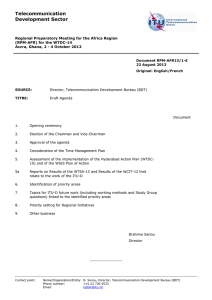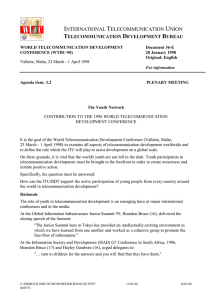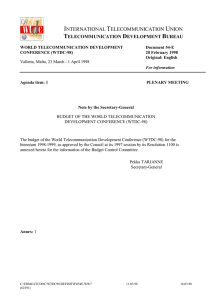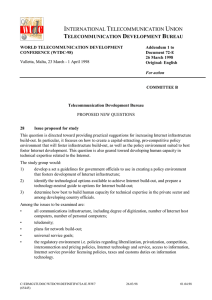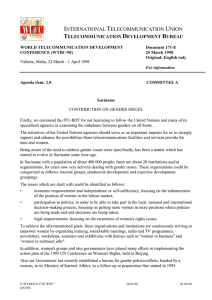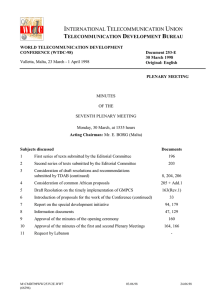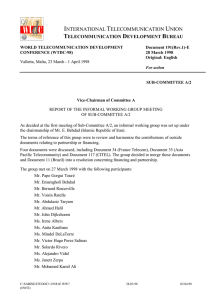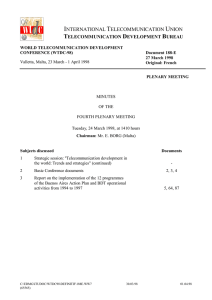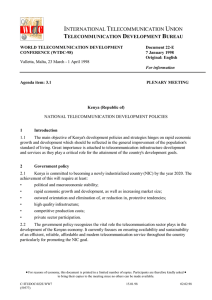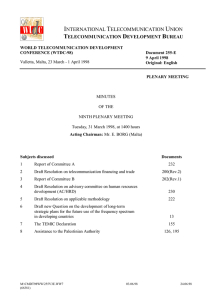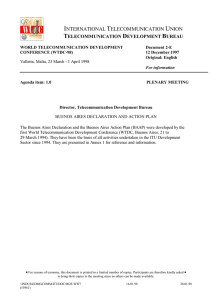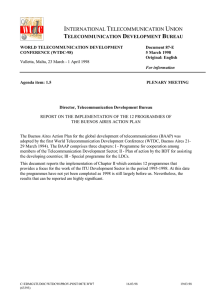I T U D
advertisement
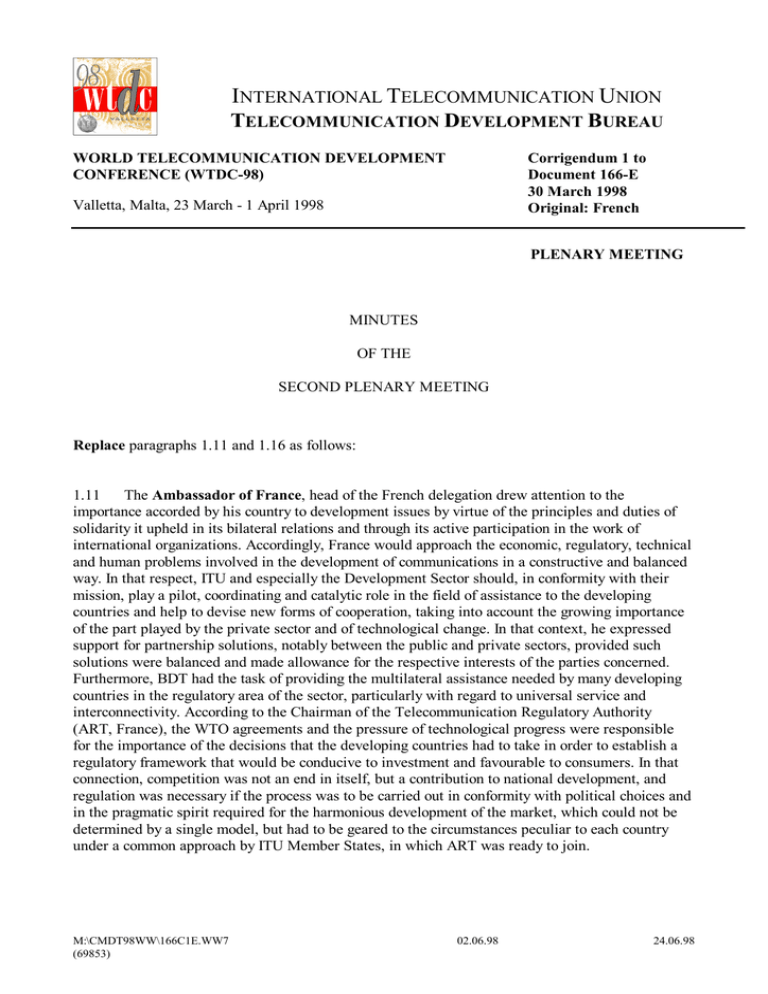
I NTERNATIONAL TELECOMMUNICATION UNION TELECOMMUNICATION DEVELOPMENT BUREAU Corrigendum 1 to Document 166-E 30 March 1998 Original: French WORLD TELECOMMUNICATION DEVELOPMENT CONFERENCE (WTDC-98) Valletta, Malta, 23 March - 1 April 1998 PLENARY MEETING MINUTES OF THE SECOND PLENARY MEETING Replace paragraphs 1.11 and 1.16 as follows: 1.11 The Ambassador of France, head of the French delegation drew attention to the importance accorded by his country to development issues by virtue of the principles and duties of solidarity it upheld in its bilateral relations and through its active participation in the work of international organizations. Accordingly, France would approach the economic, regulatory, technical and human problems involved in the development of communications in a constructive and balanced way. In that respect, ITU and especially the Development Sector should, in conformity with their mission, play a pilot, coordinating and catalytic role in the field of assistance to the developing countries and help to devise new forms of cooperation, taking into account the growing importance of the part played by the private sector and of technological change. In that context, he expressed support for partnership solutions, notably between the public and private sectors, provided such solutions were balanced and made allowance for the respective interests of the parties concerned. Furthermore, BDT had the task of providing the multilateral assistance needed by many developing countries in the regulatory area of the sector, particularly with regard to universal service and interconnectivity. According to the Chairman of the Telecommunication Regulatory Authority (ART, France), the WTO agreements and the pressure of technological progress were responsible for the importance of the decisions that the developing countries had to take in order to establish a regulatory framework that would be conducive to investment and favourable to consumers. In that connection, competition was not an end in itself, but a contribution to national development, and regulation was necessary if the process was to be carried out in conformity with political choices and in the pragmatic spirit required for the harmonious development of the market, which could not be determined by a single model, but had to be geared to the circumstances peculiar to each country under a common approach by ITU Member States, in which ART was ready to join. M:\CMDT98WW\166C1E.WW7 (69853) 02.06.98 24.06.98 -2CMDT98/166(Corr.1)-E 1.16 The Minister of Transport and Communications of Kenya pointed out that regional telecommunication development conferences were very useful and should therefore be organized on a regular basis with ITU support and the active participation of all the partners concerned and the regional telecommunication organizations. It was also essential that the decisions taken by those conferences should be implemented, in particular the decisions of the latest African regional conference relating to the revitalization of the PANAFTEL network and the African Green Paper. Kenya was requesting assistance from BDT for the development of its human resources, in particular staff at the Kenya College of Communications Technology, Gilgil Telecommunication Industries, and for the rehabilitation of the testing and calibration centre set up in Kenya with the help of ITU and UNDP, so that it could be used to calibrate digital equipment. The BDT in conjunction with the regional telecommunication organization should promote regional cooperation in such areas as utilization of available training facilities, manufacturing plants, research and development centres, and the planning and implementation of regional projects. __________________ M:\CMDT98WW\166C1E.WW7 (69853) 02.06.98 24.06.98
